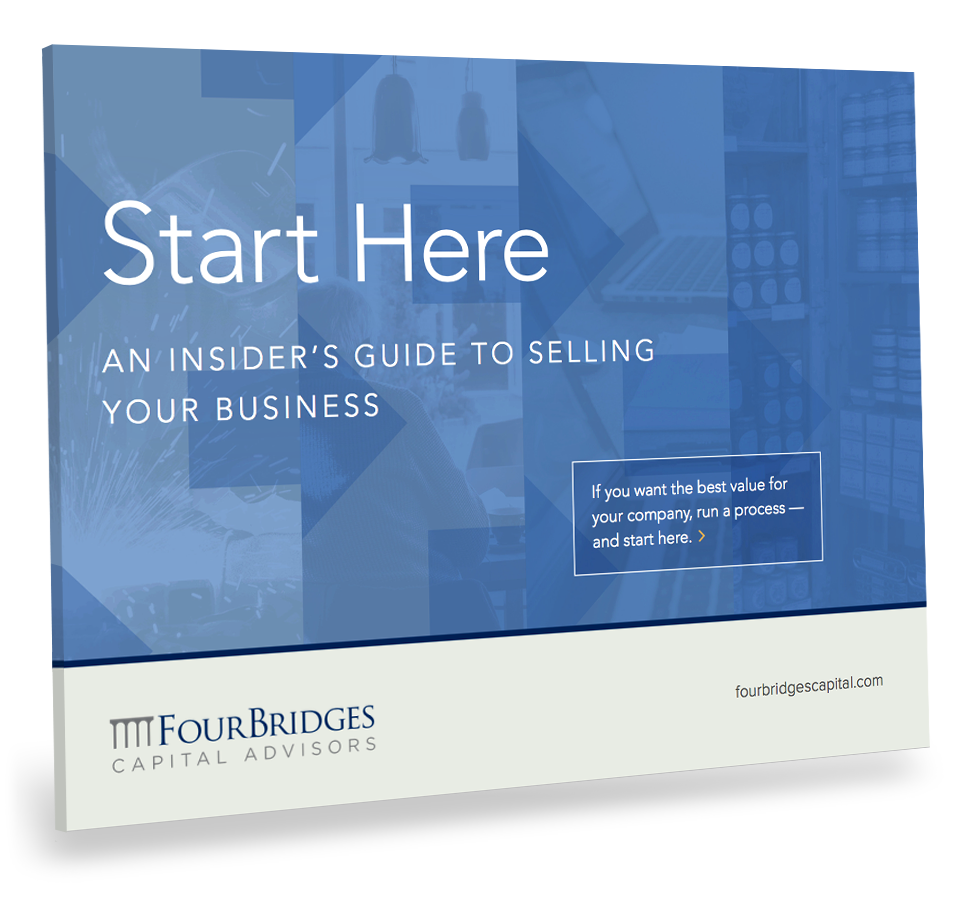Insights & News
FourSight: Q1 Was a Tale of Three Cities
The latest GF Data report reveals that Q1 M&A activity was marked by mixed messages. While deal volume remained constrained, valuations were up for top tier companies that continued to see the bulk of the action. Surging debt pricing and the increased cost of capital were major topics of discussion in the transaction arena.
GF Data’s quarterly report focuses on private M&A transactions valued from $10 to $500 million — a newly expanded scope, up from a $250 million cap in prior reports. The Q1 survey includes data from 382 private equity funds that reported on 70 transactions in the first quarter.
Key takeaways from the latest report include:
- Q1 of 2023 saw a rebound in purchase price multiples from a dip in Q4 2022, but the number of closed transactions remained sluggish.
- Valuations as a multiple of EBITDA rebounded to 8.0X in Q1, up from a dip down to 6.9X in Q4 2022.
- Borrowing costs continued to surge, reaching 8.1% on senior debt, up from an average 6.7% in Q4. Subordinated debt increased by 200 basis points to 16.8%.
- In addition to rising borrowing costs, lenders reduced the amount of debt they’re willing to contribute to the capital structure of a buyout.
- Buyers are addressing higher borrowing costs and the pullback in debt availability by substantially increasing the amount of equity contributed in a transaction, rising from 56% to 59.7% of the purchase price.
Between the insights provided by the GF Data report, and what we’re seeing in the market, 2023 appears to be shaping up as a “Tale of Three Cities.”
City One: Financing is Difficult for Big Deals
Billion dollar plus transactions are having difficulty finding debt financing. This is due, in large part, to the ripple effects of bank failures and higher interest rates. Banks are simply not comfortable lending as much as they have in the past, which means that buyers are being forced to put more equity into deals.
In the current climate, private equity often has to come up with a whopping 60% of the purchase price because banks are only willing to cover around 40%. Due to the reduction in their returns, private equity funds aren’t chasing as many big transactions as they have in the past.
City Two: Solid Companies with Solid Characteristics get Solid Multiples of EBITDA … but Not Much More
Lower middle market companies with average financial characteristics are generating interest from buyers, but valuations reflect “nice to have” versus “got to have.” Dry powder for acquisitions is still out there, but not at nosebleed multiples as buyers assess whether a “hard landing” recession is in the cards.
It’s still a good environment for an exit, but it’s important to have realistic valuation expectations — don’t believe the guy at the golf club who got 10X EBITDA. Solid companies can still get solid valuations on a historical basis that should fit with an owners’ financial planning need for an exit, versus waiting another three years for a potentially “better environment.”
City Three: Class A Mid-Market Properties Get Good Looks
Lower mid-market companies with strong financial performance and business fundamentals are being received very warmly by buyers, which is heating up competition and driving up valuations.
This coincides with a trend we’re seeing where some of the bigger private equity funds who previously targeted $10 million EBITDA companies are going “down market” to the $5-$10 million range in order to deploy the capital in their war chest. Due to the difficulty of securing financing for big deals, many large funds are being forced to look at smaller deals than they would normally be interested in.
What It Means for Sellers
Despite the persistent decline in deal volume, mid-market companies with strong financials are on solid ground. And if your finances aren’t where they should be? This is the time to try and get there. Buyers want to see strong financial reporting, increasing sales and profitability, good EBITDA margins, a solid management team, a diversified client base, and large and growing end markets for your product.
We talked a lot about the “dry powder” out there in Q4, and there’s still a significant amount of raised capital sitting in the coffers that needs to be put to use (see KLH Capital below). Despite what you may be hearing about rising interest rates and a potential recession, a closed deal with an attractive valuation is a solid possibility if you’ve got solid financial characteristics. Considering a business sale? We’re here to help.
Recent Private Equity Transactions
KLH Capital closed on its fifth fund, which was oversubscribed with a final closing of $400 million in capital. KLH makes majority and minority investments in family- and founder-owned distribution, specialty services, and niche manufacturing companies with $4 to $20 million EBITDA.
Breck Partners has invested in Alloy Wheel Repair Specialists, a provider of light vehicle aluminum wheel repair, remanufacturing, and wholesale services.
Saw Mill Capital has formed SMC Roofing Solutions as a platform to consolidate residential roofing repair companies. SMC is the first platform investment for Saw Mill Capital Partners III LP, and supports a strategy to create a multi-regional, residential re-roofing platform focused predominantly on insurance-claim demand.
Capital Alignment Partners (“CAP Funds”), a lower-middle market private equity firm, formed Atlantis Fire Protection, and acquired Keller’s, Inc. and McCoy Fire and Safety. CAP Funds partnered with Lynch Holdings to form the company and complete the first two acquisitions.
